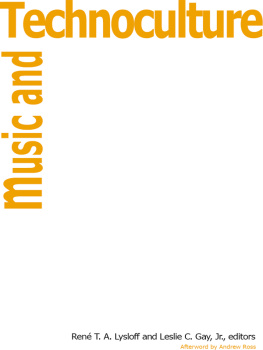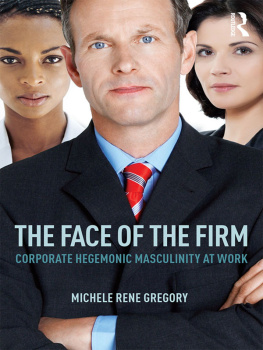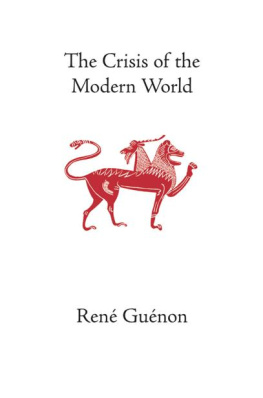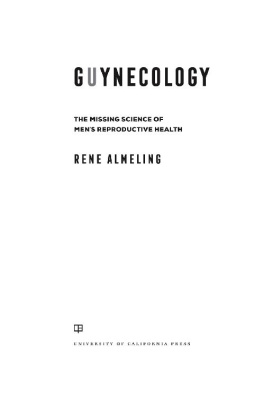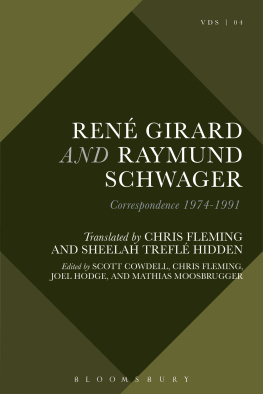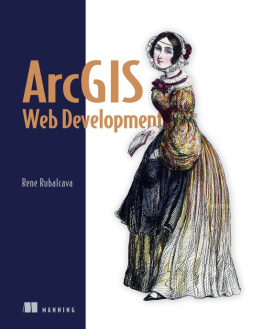Lysloff René T. A. - Music and Technoculture
Here you can read online Lysloff René T. A. - Music and Technoculture full text of the book (entire story) in english for free. Download pdf and epub, get meaning, cover and reviews about this ebook. City: Middletown;Connecticut, year: 2003;2014, publisher: Wesleyan University Press, genre: Politics. Description of the work, (preface) as well as reviews are available. Best literature library LitArk.com created for fans of good reading and offers a wide selection of genres:
Romance novel
Science fiction
Adventure
Detective
Science
History
Home and family
Prose
Art
Politics
Computer
Non-fiction
Religion
Business
Children
Humor
Choose a favorite category and find really read worthwhile books. Enjoy immersion in the world of imagination, feel the emotions of the characters or learn something new for yourself, make an fascinating discovery.
- Book:Music and Technoculture
- Author:
- Publisher:Wesleyan University Press
- Genre:
- Year:2003;2014
- City:Middletown;Connecticut
- Rating:4 / 5
- Favourites:Add to favourites
- Your mark:
- 80
- 1
- 2
- 3
- 4
- 5
Music and Technoculture: summary, description and annotation
We offer to read an annotation, description, summary or preface (depends on what the author of the book "Music and Technoculture" wrote himself). If you haven't found the necessary information about the book — write in the comments, we will try to find it.
Music and Technoculture — read online for free the complete book (whole text) full work
Below is the text of the book, divided by pages. System saving the place of the last page read, allows you to conveniently read the book "Music and Technoculture" online for free, without having to search again every time where you left off. Put a bookmark, and you can go to the page where you finished reading at any time.
Font size:
Interval:
Bookmark:

Music and Technoculture

Music and Technoculture
EDITED BY REN T. A . LYSLOFF AND LESLIE C . GAY, JR.
Afterword by Andrew Ross

WESLEYAN UNIVERSITY PRESS
Middletown, Connecticut
Published by Wesleyan University Press, Middletown, CT 06459
2003 by Wesleyan University Press
All rights reserved
Printed in United States of America
5 4 3 2 1
Library of Congress Cataloging-in-Publication Data
Music and technoculture / edited by Ren T. A. Lysloff and Leslie C.
Gay, Jr. ; afterword by Andrew Ross.
p. cm. (Music/culture)
ISBN 081956513-X (alk. paper) ISBN 0819565148 (pbk. : alk. paper)
1. Music and technology. 2. Music20th centuryHistory and criticism. 3. Music21st centuryHistory and criticism. 4. MusicSocial aspects. 5. Ethnomusicology. I. Lysloff, Ren T. A. II. Gay, Leslie C. III. Series.
ML197.M78 2003
780.06dc21
2003004628
Acknowledgments

Several people and institutions deserve our thanks for their support in publishing this book. We are grateful to our friends and colleagues who share our fascination with music and technoculture for their intellectual engagement in conversation, colloquia, and symposia, and ultimately for their contributions to this collection. We are especially grateful, too, for their patience throughout this process. We want to note the importance of the Society of Ethnomusicology in providing venues for the several conferences, symposia, and publications that first gave voice to many of the ideas presented here.
We also want to acknowledge the support of our home institutions, the University of California, Riverside, and the University of Tennessee. Both institutions have been generous in their support of our work; especially noteworthy is the direct support for this publication from the University of Tennessees Exhibit, Performance and Publication Expenses Fund and the University of California Academic Senate Research Fund.
We also thank the University of Illinois Press for making several essays available for publication here: Tong Soon Lees Technology and the Production of Islamic Space: The Call to Prayer in Singapore, Thomas Porcellos Tails Out: Social phenomenology and the Ethnographic Representation of Technology in Music Making, and Jonathan Sternes Sounds Like the Mall of America: Programmed Music and the Architectonics of Commercial Space, all of which appeared previously in the journal Ethnomusicology. Additionally, we thank this press for allowing the publication of Leslie Gays essay Before the Deluge: The Technoculture of Song Sheet Publishing Viewed from Late Nineteenth-century Galveston, first published in American Music.
Finally, we want to thank the staff at Wesleyan University Press, especially Suzanna Tamminen and Leonora Gibson, for their guidance and work in seeing this book through its publication.
Music and Technoculture
CHAPTER ONE
Introduction
Ethnomusicology in the Twenty-first Century

Ren T. A. Lysloff and Leslie C. Gay, Jr.
 In 1995, for the 40th Annual Meeting of the Society for Ethnomusicology (SEM), held in the beautiful Hotel Biltmore in Los Angeles, we organized a Pre-Conference Symposium on music and technoculture. Although several ethnomusicologists have been concerned with such issues in the past, this pre-conference setting marked the first time scholars had come together to speak specifically about the impact of technologyparticularly audio, communications, and informational technologyon cultural practices involving music. We numbered about ninety participants with fifteen presentations. The symposium was publicized using an image that poked gentle fun at the SEM logo (a stylized image of a nude and obviously male pre-Columbian flute player that is printed on all SEM publications, including the flagship journal Ethnomusicology). Our participants, not all necessarily members of SEM, sported name badges with the logo parody, clearly distinguishing them from the attendees of another Pre-Conference Symposium held at the same timeon the music and scholarship of Bla Bartk. There couldnt have been two more contrasting events in the same hotel.
In 1995, for the 40th Annual Meeting of the Society for Ethnomusicology (SEM), held in the beautiful Hotel Biltmore in Los Angeles, we organized a Pre-Conference Symposium on music and technoculture. Although several ethnomusicologists have been concerned with such issues in the past, this pre-conference setting marked the first time scholars had come together to speak specifically about the impact of technologyparticularly audio, communications, and informational technologyon cultural practices involving music. We numbered about ninety participants with fifteen presentations. The symposium was publicized using an image that poked gentle fun at the SEM logo (a stylized image of a nude and obviously male pre-Columbian flute player that is printed on all SEM publications, including the flagship journal Ethnomusicology). Our participants, not all necessarily members of SEM, sported name badges with the logo parody, clearly distinguishing them from the attendees of another Pre-Conference Symposium held at the same timeon the music and scholarship of Bla Bartk. There couldnt have been two more contrasting events in the same hotel.
Our aim in organizing the symposium was to explore some new understandings of musical culture in which the concept of culture itself is radically reconfigured in terms of globalizing, increasingly sophisticated media and information technologies. We wanted to establish an ethnomusicology of technoculture, by which we mean an ethnographic study of musical culture with emphasis placed on technological impact and change. Our purpose in arguing for an ethnomusicology of technoculture was to break from past conventions of examining only folkish or high art traditions of music, on the one hand, and to go beyond discussing the music industry in the study of popular culture, on the other. The playful transformation of the Society for Ethnomusicology logo, transformed into a pre-Columbian electric guitar player sporting sunglasses, who was affectionately called Ethno-Techno-person (shown above), is a spoof aimed at our field, suggesting how much the world has changed over the past fifty years or so since ethnomusicology has become institutionalized in the American academy. The ethnographic Other is now fully plugged in, and the ethnomusicologist is no longer the only person in the field with high-tech equipment (video camera, tape recorder, etc.). Even the process of transforming the SEM logo into Ethno-Techno-person, printing the image on flyers and conference badges, placing it on a website, and so forth, involved learning sophisticated computer programs, a testament to the new kinds of skills and knowledge that ethnomusicologists must know to keep the discipline relevant in a changing world. Thus, while its meaning and use may differ from place to place, and while it might be either oppressive or liberating, researchers and their ethnographic Others have both long fully embraced media technologylock, stock, and circuit board.
On the Concept of Technoculture
According to several essays by Andrew Ross, the term technoculture refers to communities and forms of cultural practice that have emerged in response to changing media and information technologies, forms characterized by technological adaptation, avoidance, subversion, or resistance.
Nevertheless, common sense tells us that technology, rather than being part of our lived experience, only mediates it. Until recently, this view has been apparent in much of the ethnomusicological literature and the various recording methods used to represent the soundscape of the musical Other. Ethnomusicologists are generally encouraged to use technology in research, bringing to the field cameras, cassette tape players, microphones, handy-cams, and so on. Upon return from the field, we listen to our material on our stereos, view it on our VCRs and color TVs, write about it on our personal computers, and use it to teach in our classrooms. We might say, then, that technology privileges the researcher, distancing him or her from the object of researchwhether music/sound or human behaviorand allowing him or her to control it. Indeed, the sound document becomes a true object: isolated from the noisy chaos of real life in the field, it becomes analyzeable, frameable, manipulable, and, ultimately, exploitable.
Next pageFont size:
Interval:
Bookmark:
Similar books «Music and Technoculture»
Look at similar books to Music and Technoculture. We have selected literature similar in name and meaning in the hope of providing readers with more options to find new, interesting, not yet read works.
Discussion, reviews of the book Music and Technoculture and just readers' own opinions. Leave your comments, write what you think about the work, its meaning or the main characters. Specify what exactly you liked and what you didn't like, and why you think so.

